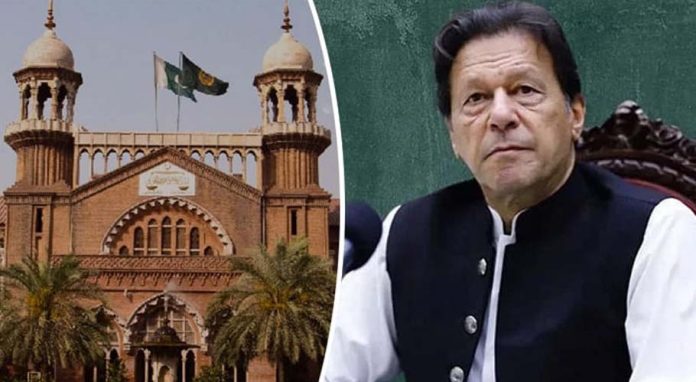LAHORE: The Lahore High Court (LHC) – once again – took a stern stance against the lawyers representing the Pakistan Tehreek-e-Insaf (PTI) chief on Tuesday for documents with forged signatures submitted to the court.
LHC’s division bench, led by Justice Aalia Neelum, also cast doubt on the commitment of former prime minister Imran Khan’s legal counsel.
The court, therefore, declined the law-yer’s request to access police records to ascertain if Imran’s arrest had been documented. Earlier this year in February, Justice Tariq Saleem Sheikh had called for Imran’s appear-ance to authenticate his signatures on three documents presented by his legal representa-tives, which were found to contain counterfeit signatures.
Justice Aalia presided over a civil miscellaneous application seeking early proceedings of a case in which PTI had challenged the dismissal of its chairman’s bail in seven cases regis-tered against him in response to his arrest, including a case of the Jinnah House attack. As the proceedings commenced, the judge questioned the conduct of the lawyer represent-ing Imran. “Where is the lawyer?” she asked. Advocate Sikandar Zulqarnain informed the court that the lawyer was present in Islamabad to attend some proceedings and that he was also Imran’s lawyer in some cases.
“Where is your power of attorney?” the judge asked. “Your signatures on the power of attor-ney are fake.”
“I have signed on three cases, while three of them were signed by my clerk,” advocate Si-kandar told the court.
“When you people do not have time, then why do you file cases?” Justice Aalia remarked. “You should consider your seriousness when the case is filed by one person and pleaded by another.”
The lawyer argued that all relevant documents would be provided by the next date and re-quested the court to summon the case record to determine whether or not Imran’s arrest had been mentioned.
“This court will pass such an order when there is a lawyer before this court,” the judge re-marked.
Subsequently, the court fixed October 25 as a deadline with the direction to come up with all relevant documents.
Faux signatures
In February, Justice Sheikh noted a difference in the signatures of petitioner Imran when his protective bail in a case related to a protest outside the Election Commission of Pakistan (ECP) was filed.
He had criticized the PTI’s counsel for allegedly deceiving the court by submitting forged documents. The signatures were forged on three documents (petition, affidavit, and power of attorney).
The judge had disclosed his intention to issue a contempt notice to either Imran or his counsel for deceiving the court. However, he summoned the PTI Chairman instead to verify the signatures on the said documents.
The PTI Chief stated that he had no knowledge of said petitions and tendered an apology. –Agencies




